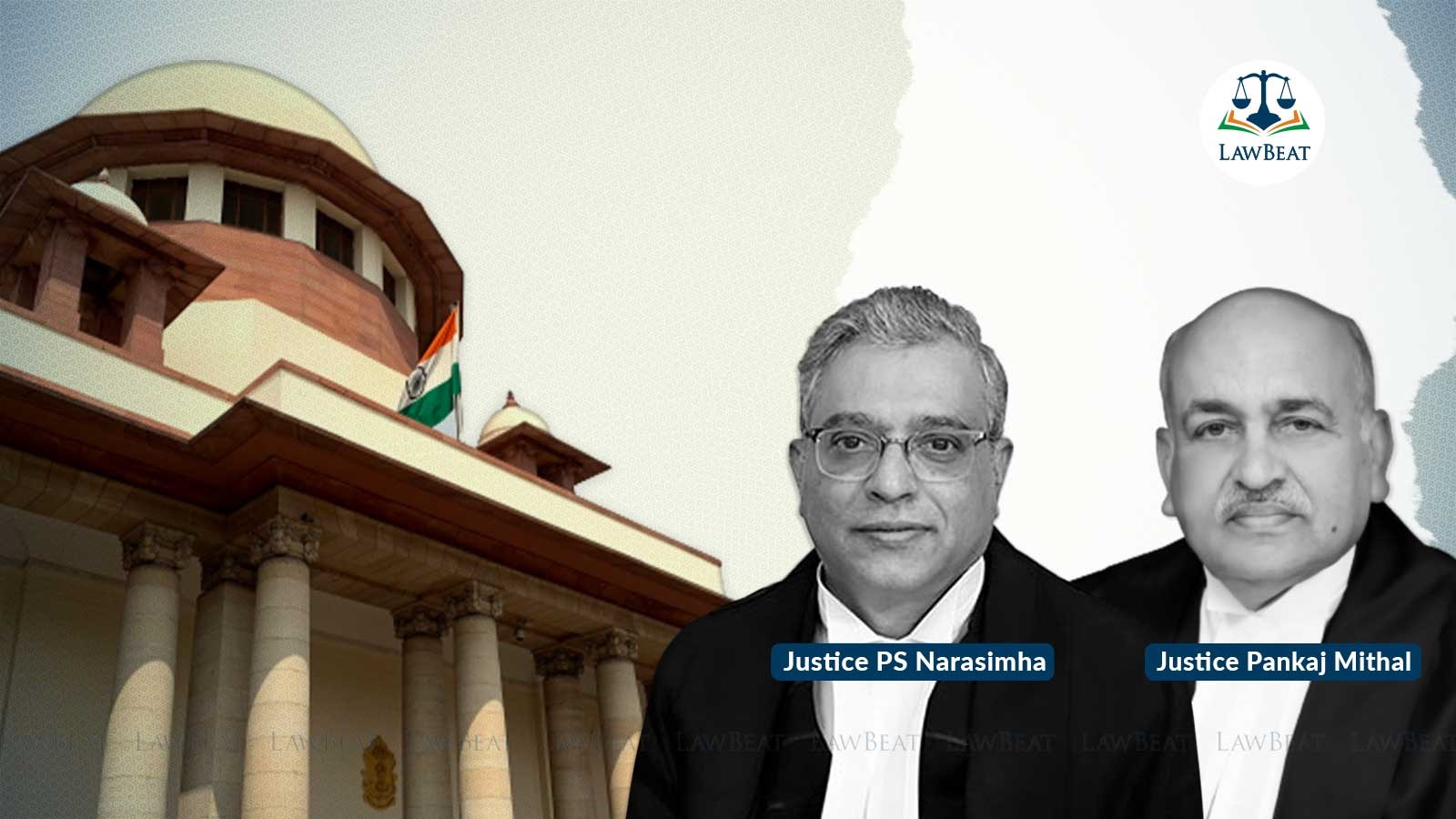SC sets aside order quashing repatriation of RTC Class III and IV employees to parental zones in Telangana

The Supreme Court said that the high court failed to see that respondents employees had returned to this parent cadre in the State of Telangana
The Supreme Court on September 6, 2024 set aside the Andhra Pradesh High Court's 2020 judgment which quashed an order on repatriation of Class III and IV employees of road transport corporation to their original zones following the bifurcation of Telangana from the former unified Andhra Pradesh.
A bench of Justices P S Narasimha and Pankaj Mithal said that the respondent employees were recruited at the regional level and belonged to the successor state corporation in which the region fell.
Those employees were on deputation and were not absorbed in deputed posts and in fact have already returned to their parent cadre and their seniority continued in their parental zones, the bench noted.
"Following the statutory mandate, read with the Agenda Note dated 16.08.2017, the respondents will continue their employment in the same region, which is under the present TSRTC," the bench ordered.
The court pointed out that Section 77 of the Andhra Pradesh Reorganisation Act, 2014 applied to state government employees and Section 82 clearly stated that the corporations would determine the modalities for distributing their employees between the successor states.
Pursuant to this, the Board of Directors with members from the central government, State of Andhra Pradesh, and State of Telangana prepared the Agenda Note on August 16, 2017 that set out the allocation of various kinds of employees between APSRTC and TSRTC, it noted.
"Upon going through the Agenda Note, we find that the Board has decided that Class III and Class IV employees, who are appointed at the regional level, are to be allocated to the Corporation in which the region falls after bifurcation," the bench said.
In the case, the bench said that the high court incorrectly relied on Section 77 of the Act and in fact failed to notice Section 82 and the follow-up action taken thereunder.
It said that the high court also ignored the correct enunciation of the applicable law in the order of April 18, 2018, whereunder the respondents were directed to report at their parental zones as per the guidelines.
"As there is no dispute about the applicability of Section 82 even at the bar, the submission that the modalities for allocation have not been decided cannot be accepted in light of the Agenda Note dated 16.08.2017," the bench said.
The court also found that since there was no challenge to the Agenda Note and its approval, the division bench of the high court failed to note that the respondents who were on deputation were not absorbed in the deputed posts. In fact, their seniority was continued in their parental zones, it highlighted.
The bench also noted that the high court also did not consider the subsequent development that the respondents were in fact repatriated to their parent cadre as a consequence of the interim order passed by the division bench on April 18, 2018.
"It is for this reason that this court had, at the stage of admission, stayed the judgment of the division bench of October 05, 2020, which stay is continuing till date. The consequence is that the respondents have returned to this parent cadre in the State of Telangana," the court said.
The State of Telangana was formed under Section 3 of the Andhra Pradesh Reorganisation Act, 2014. The bifurcation of states came into effect on June 02, 2014 and this was declared to be the appointed date under the Act.
The present matter relates to Class III and Class IV employees who were working as conductors, drivers and shramiks. They were appointed between 2014 to 2017 in districts, and more particularly zones carved out under the Presidential Order, read with Article 371D of the Constitution, that formed part of Telangana, which areas now fall within the State of Telangana.
These respondents were temporarily deputed to zones which now forms part of the bifurcated State of Andhra Pradesh. The orders of deputation were extended by way of several notifications issued from time to time. Some deputations were made even after the bifurcation of the Corporations, pending finalisation of guidelines for permanent allocation of employees.
The issue was related to the validity of the repatriation orders passed by the appellant APSRTC, relegating the respondents to the zones of their initial appointment.
The respondents challenged the notification of June 8, 2017 on repatriation and the consequent orders passed by Depot Managers by filing writ petitions before the high court. The high court's single judge on writ petitions by employees set aside the repatriation orders on the ground that the guidelines for allocation of employees had not been filed between the two corporations.
The appellant Andhra Pradesh Road Transport Corporation and others approached the division bench which suspended the order of the single judge and directed the respondents to report in their parent zones under the TSRTC, where they were initially appointed, as the guidelines for allocation of employees were jointly finalised by APSRTC and TSRTC.
However, in the impugned final judgment, the high court took a different view of the matter and directed permanent allocation of the respondents in their deputational posts falling in the State of Andhra Pradesh.
The apex court allowed the civil appeal holding the decision of the division bench as unsustainable.
Case Title: Andhra Pradesh State Road Transport Corporation & Ors Vs V V Brahma Reddy & Anr
